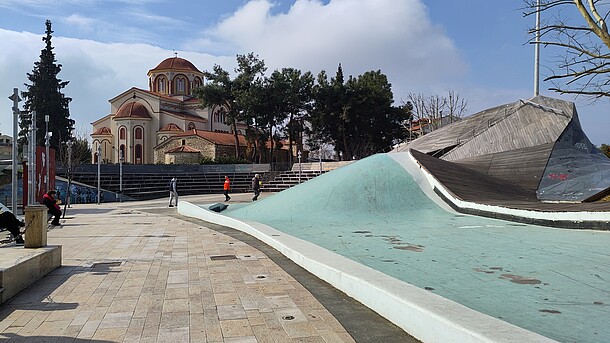Educating Planners for the New Challenges of Sustainability, Knowledge, and Governance (PLAN-ED)
| Led by: | Dr. Frank Scholles, Dr. Stefan Rüter, Dr. Pia Steffenhagen, Prof. Dr. Michael Reich, Prof. Dr. Rainer Danielzyk |
| Year: | 2013 |
| Funding: | EU-US ATLANTIS Programm |
| Duration: | September 2010 - März 2013 |
| Is Finished: | yes |
Kurzbeschreibung:
The challenges posed to sustainability by the combination of global environmental, political and socioeconomic shifts call for innovative planning and policy solutions. It is critical to rethink the way in which planning education adapts and responds to these new challenges. This policy project will draw from the strength and specializations of four schools of planning and from the commonalities and differences between the four cities and the regions (Bristol, Hannover, Richmond and Portland) in which they are situated and have developed knowledge and practice networks.
The consortium is composed of two EU and two U.S. universities:
1.University of the West of England, Bristol, Department of Planning and Architecture (EU Project Leader)
2.Leibniz Universität Hannover, Germany, Faculty of Architecture and Landscape
3.Virginia Commonwealth University, L. Douglas Wilder School of Government and Public Affairs (U.S. Project Leader)
4.Portland State University, Nohad A. Toulan School of Urban Studies and Planning
The main purpose of the collaborative project PLAN-ED is the enhancement of planning education in Europe and the United States through the international exchange of planning knowledge, methodologies, and practices and the tuning of competences and learning outcomes in urban and regional planning degree-granting institutions. The project will represent a platform for promoting the comparability, transparency, and interchangeability of knowledge, practices, and skills taught in planning schools in different international and geo-political contexts. The model emerging from this project is intended to benefit not only its original participants, but also other planning degree-granting institutions and the communities that they serve.
Projektbeschreibung:
The challenges posed to sustainability by the combination of global environmental, political and socioeconomic shifts call for innovative planning and policy solutions. It is critical to rethink the way in which planning education adapts and responds to these new challenges. The policy project PLAN-ED drawed from the strength and specializations of four schools of planning and from the commonalities and differences between the four cities and the regions (Bristol, Hannover, Richmond and Portland) in which they are situated and have developed knowledge and practice networks. The consortium was composed of two EU and two U.S. universities:
- University of the West of England, Bristol, Department of Planning and Architecture (EU Project Leader).
- Leibniz Universität Hannover, Germany, Faculty of Architecture and Landscape
- Virginia Commonwealth University, L. Douglas Wilder School of Government and Public Affairs (U.S. Project Leader)
- Portland State University, Nohad A. Toulan School of Urban Studies and Planning
The main purpose of the collaborative project PLAN-ED was the enhancement of planning education in Europe and the United States through the international exchange of planning knowledge, methodologies, and practices and the tuning of competences and learning outcomes in urban and regional planning degree-granting institutions. The project represents a platform for promoting the comparability, transparency, and interchangeability of knowledge, practices, and skills taught in planning schools in different international and geo-political contexts. The model emerging from this project is intended to benefit not only its original participants, but also other planning degree-granting institutions and the communities that they serve.




